 Life & Style
Life & Style

Local life in Trấn Yên District in the northern province of Yên Bái has been much improved with the development of silkworm raising in the area in recent years.
Life in Trấn Yên District in the northern province of Yên Bái has greatly improved thanks to the development of silkworm farming in recent years.
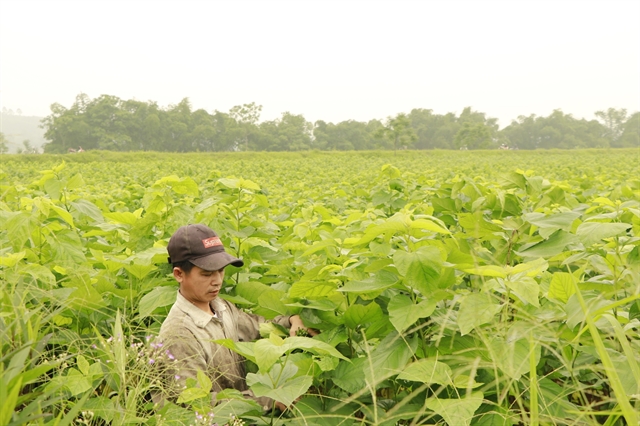
|
| A farmer in Trấn Yên District picks mulberries to feed silkworms. — VNA/VNS Photo Đức Tưởng |
Trấn Yên District has nearly 800 hectares of land with nearly 2,000 households devoted to mulberries and silkworms, which have become their main source of income.
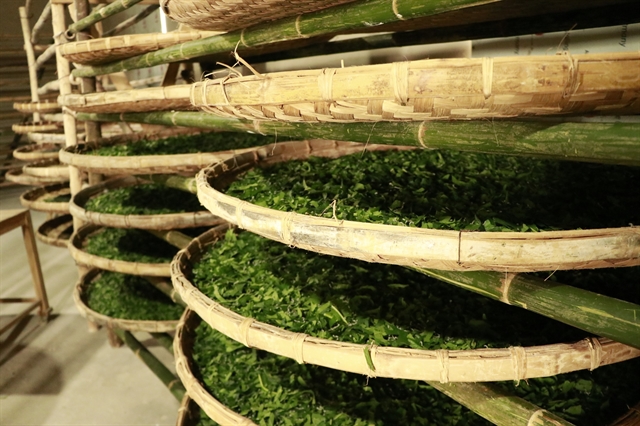
|
| Mulberries are prepared as food for silkworms. — VNA/VNS Photo Đức Tưởng |
According to Triệu Thị Bích Liệu, Head of the Agriculture and Rural Development Department of the district, Yên Bái Province has supported and encouraged villagers to plant new varieties of mulberry and raise new kind of silkworms for higher yield and quality than old varieties to develop the craft sustainably.
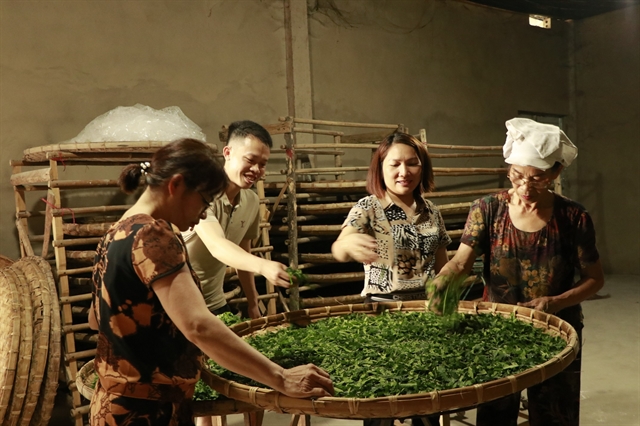
|
| Farmers prepare mulberries to feed silkworms. — VNA/VNS Photo Đức Tưởng |
At the same time, silkworm raisers have also been helped to use better mulberry farming techniques, including raising silkworms on the ground to reduce investment costs.
Additionally, local farmers have been encouraged to convert unprofitable rice fields and crops along the Red River to mulberries and silkworms, she added.
Many households in Trấn Yên District have not only escaped poverty but even become well-off thanks to the stable income earned from the cultivation of mulberry and raising silkworms in recent years, like Nguyễn Đức Mạnh's family.
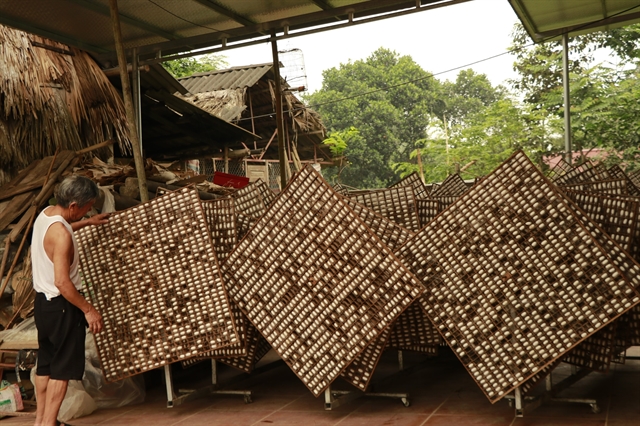
|
| The district now has nearly 800 hectares of land with nearly 2,000 households devoted to mulberries and silkworms, which have become their main source of income. — VNA/VNS Photo Đức Tưởng |
“My wife and I used to work as labourers and switched to mulberry and silkworms farming in 2020. With the current selling price of a cocoon at VNĐ110,000 (US$5) per kilo, each year, we earn about VNĐ80 million ($3,500) from the job only from the second to the 10th lunar months,” Mạnh said.
“So in total, we could earn from VNĐ100-120 million ($4,300-5,100) per year from cultivating mulberries and raising silkworms, much higher than working as a labourer”.
Last year, despite the COVID-19 pandemic, raising silkworms earned the villagers nearly $3.5 million.
Trấn Yên’s poverty rate has fallen to 4 per cent and per capita income grew to more than $1,700 last year, making the district the first new-style rural district in the northwestern region.
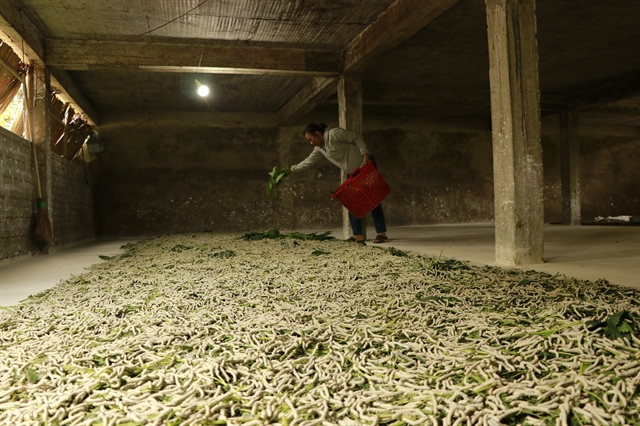
|
| Silkworm raisers have been encouraged to apply advances in mulberry farming. — VNA/VNS Photo Đức Tưởng |
According to local authorities, the district will continue to expand the area dedicated to mulberry cultivation and silkworm raising, consolidate the co-operatives to act as a cocoon purchasing point for villagers and support farmers with better quality varieties of silkworms.
In particular, the district has focused on creating favourable conditions to attract enterprises investing in silk and heighten the value of local mulberry products. — VNS




